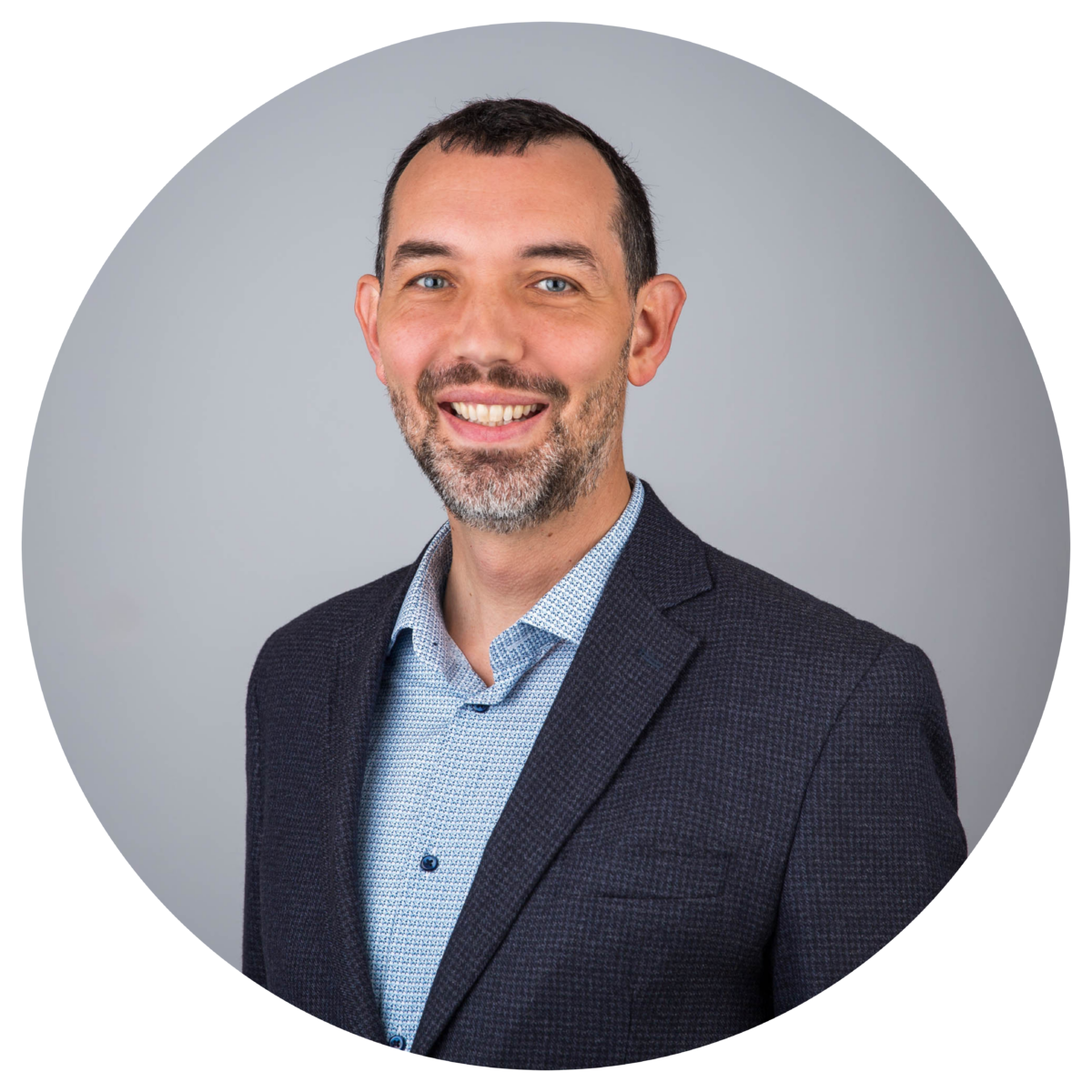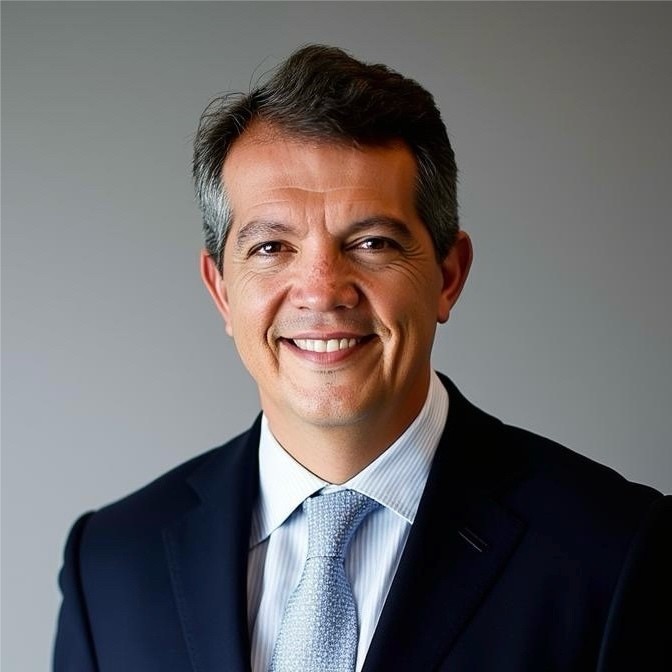
The Pulse by GRESB
The Pulse by GRESB is an insightful content series featuring the GRESB team, partners, GRESB Foundation members, and other experts. Each episode focuses on an important topic related to either GRESB, ESG issues within real assets industry, decarbonization efforts, or the wider market.
- Watch on Youtube
- Listen on Spotify
- Listen on Apple Podcasts
Mind the gap: Bridging reporting and real performance — GRESB Foundation London 2025
Listen to the latest episode of The Pulse, recorded during the recent GRESB Foundation meetings in London. Over several days of in-depth discussions, Foundation board members and Real Estate & Infrastructure Standards Committees explored strategic changes, industry challenges, and emerging opportunities. Topics ranged from reporting burden and performance metrics to embodied carbon and evolving industry expectations. Listen to the episode with insights from:
Transcript
Can’t listen? Read the full transcript below. Please note that edits have been made for readability.
Sarah: This is Sarah Welton. I’m the Director of the GRESB Foundation and Secretary to the Foundation Board. We are in London with the Standards committees as well as some of the foundation board members. The foundation members will have had three full on days of back to back meetings. The Real Estate and Infrastructure Standards Committee Members will be having meetings where they contemplate strategic changes that will need to come through the standards this year. And then also we had the IIGCC come to talk to the Infrastructure Standards Committee. We also hosted the data center working group, so they came in to talk to the standards committee members and give them an update on the work thus far.
And today, the Real Estate Standards Committees invited the change management working group to present its principles for change that will help drive the governance process as we continue to create proposals that will be reviewed and implemented by the foundation.
Madelaine: Hi, I am Maddie Broad. I’m a Senior Investment Manager within New South Wales Treasury Corporation, T Corp, in Australia.
Tyler: Thank you for joining me. Can you tell me a little bit about how you see the role of the GRESB Foundation and why it’s important for the industry?
Madelaine: GRESB is a really useful tool to enable really robust discussions around sustainability risks and opportunities, within the infrastructure and real estate industry. It’s really useful for asset owners like ourselves to be able to have a comprehensive and consistent assessment globally to assess our assets and to drive a conversation. It also enables our assets and managers to improve their performance in sustainability over time because they have that feedback mechanism, and they’re able to track progress. The other benefit is it provides us with a comprehensive set of data that is consistent and able to be aggregated.
Tyler: And as a member of the Infrastructure Standards Committee, can you tell me, when you think about the key priorities that the foundation has for 2025, which ones do you see as most important or most relevant?
Madelaine: So I think there’s two that stand out to me at the moment. The first is really around driving that focus on performance. That really connects to what I was saying earlier around value creation, from an investment perspective, and risk management. And so the more that we’re tracking performance, and rewarding performance, that then flows through to value creation over time. The second one is reporting burden, and so that’s really hearing what the participants in GRESB are saying in terms of, there’s a lot of different reporting requirements globally these days.
We know that we need teams to be spending time on actual management and value creation, and so it’s important that we are as efficient and systematic in terms of the reporting as possible. And so trying to reduce the number of questions and the reporting burden associated with GRESB.
Tyler: And when you talk about improving performance as it relates to the actual act of reporting, can you tell me where you see the bulk of the industry today, or the bulk of Asset managers? Are they fully focused on performance or are they more on reporting? Where is the state of play?
Madelaine: So I think it’s a bit different across different industries, different regions, and probably different levels of maturity. The leaders really do that well. What’s really important, though, is that GRESB can be used as a tool to help assets that might not be as mature or developed in their approach, to have that improvement over time and have that feedback mechanism. There is a lot of demands on assets and management teams, and a lot of reporting requirements, both from a regulatory perspective, but also from an investor perspective. So, the risk we run is that too much energy and resourcing goes into reporting and less into performance. That’s something that we are very cognizant on in the committee. That we need to have the value from the reporting. And not reporting for the sake of reporting.
Tyler: Thank you so much for taking the time.
Madelaine: Thank you.
Nathaniel: Hello, my name is Nathaniel Hay. I’m an ESG manager at Aberdeen Investments covering our European real estate portfolios. And we, as Aberdeen, and myself, are an active member of the Real Estate Standards Committee. I think the GRESB Foundation has a huge role to play here in that GRESB is the single most recognized ESG Standard for real estate. And the foundation has a role to ensure that the Standard keeps pace with both market and regulatory expectations, continuing to act as a driver for enhanced sustainability performance, and continuing to push the real estate market to start pricing in a wider set of ESG factors.
Tyler: Of all the key priorities that the foundation has for 2025, which ones do you find the most important?
Nathaniel: Most generally, I think score differentiation and working towards that and reflecting outcomes rather than effort is going to be a really important priority for the RESC. But also in doing so, reducing the reporting burden for participants as well. To really maximize that effort to output and benefit ratio. But I think going into a little bit more detail. I think the Foundation’s key priorities really have to center around those ESG issues that drive financial performance.
So, the work streams around energy and carbon efficiency being the key ones. I think, increasingly, these factors are linked to investment performance. Therefore, the transition of the Standard towards measuring these aspects is pretty crucial. And hopefully, as we do that, the GRESB Benchmark, the GRESB Standard, can result in a clearer correlation between carbon, energy efficiency, and investment performance as well.
Tyler: What other topics are you looking at right now, either in your role, or in the foundation working group?
Nathaniel: I think a key one has to be embodied carbon. Supporting the market in transitioning towards pricing in embodied carbon. Embodied carbon is a huge part of the carbon emissions pie, and that is one of the reasons why the GRESB foundation and the GRESB Standard is going to increasingly reflect performance as it relates to embodied carbon. There is a significant focus on operational carbon, and that is the right thing to do. But we also need to have one eye on embodied carbon as well.
Tyler: Picking that up for a moment. When have you started seeing a shift between thinking about or measuring embodied carbon to actually doing something tangible with it from a strategic or investment decision perspective? Do you see a moment in time where people have started to shift focus?
Nathaniel: Yeah, definitely. I think there is a little bit of a way to go, though. So we have always been focused on operational carbon, but sometimes the interventions that we need to make to a building to reduce operational carbon to the level we need it to be at, results in higher embodied carbon emissions. And more carbon emitted to the atmosphere than would’ve been emitted if we’d have just left that building well alone. And I think people are starting to realize that. And the more that is taken into account in retrofits and refurbishments of buildings, I think the more it’ll be recognized, and the more it’ll be factored into value.
Tyler: If we turn to the future, what excites you about the state of sustainability in the industry? Or what are you most looking forward to seeing develop?
Nathaniel: So I think what excites me about the future of sustainability and real assets are really those macro ESG themes and seeing progress against those. So climate, nature, and social value. Which I think are increasingly the three most material aspects to real estate investment performance, as far as ESG is concerned. These macro themes are very distinct, but they’re also interlinked and I think they’re gonna shape the built environment as we go forward. And we’re gonna hopefully work towards reflecting that to the best degree possible through the GRESB Standard.
Tyler: Thanks so much for joining me.
Nathaniel: Thank you.
Manuel: My name is Manuel Rodriguez Arregui. I’m the CEO of AINDA Energia e Infraestructura.
Tyler: Can you tell me a little bit about how you see the GRESB Foundation and what role it plays in the industry?
Manuel: In the infrastructure and energy space, there are huge benefits, in terms of our fiduciary responsibility, in terms of measuring yourself against the world standard of ESG for several reasons. One, it helps you identify and manage risks better. Two, it helps you have a more robust corporate governance. Understanding corporate governance, not only in the sense of governing bodies, committees, or boards, but also in terms of policies, procedures, compliance, transparency, compensation.
If you align all of them, you become a much more robust organization. And, third but not least, is there’s huge value migration in the infrastructure and energy space. It has greatly helped us understand, new opportunities that we wouldn’t be if we were not assessing the implications of ESG in the broader sense, and the implications of where the world needs to move in order to become more responsible.
Tyler: When you think about the priorities that the foundation’s currently focused on, can you tell me which ones you find to be most important?
Manuel: I’m personally with a position that we need to be more auto-critical in the ESG space, in order to find the best path forward. The reality is that ESG was captured by some people that had a misconception of what robust corporate governance was all about. When we talk about ESG, we talk a lot about the E. Very little about the S, and almost seldom about the G. I personally think that’s wrong. If we look at GRESB as a world standard, we need to understand that there are huge differences across the world in terms of having solid foundations of governance. There are parts of the world that need to catch up with Europe. A world standard should recognize things that we may take for granted in Europe, but we shouldn’t take for granted in the world scheme of view. We also need to acknowledge that the S and the E are sometimes at odds with each other. Especially in the developing world.
Tyler: When you look at the infrastructure industry, do you see the organizations in the industry focused more on the process of reporting, the process of trying to understand where they sit or focused on driving improvement?
Manuel: We joined GRESB because we strongly believe that in order to improve, you need to measure yourself. And that it’s a process. However, I am worried that just as the stock market has created a distortion in terms of quarter by quarter results and not looking at the long term, people are so focused on this year’s result and not the whole process that you have exclusion. Let me give you an example of a building. You can have a building facing South or a building facing North. And the energy consumption is gonna be completely different. If that building is in a warm climate, do we want the people who have joined GRESB to only buy buildings facing North? Instead of buying the buildings facing South and fixing them so that they reduce the energy consumption?
Tyler: Looking towards the future, are there any topics that you’re particularly interested in having be addressed by the foundation?
Manuel: One huge step forward has been TCFD. Having people assess the risks is a very good first step towards understanding the implications of what’s going on and creating the momentum for change. We’re still a little bit far from people understanding that when you have potential frequency of events, the insurance market does not fully cover the long-term risk. Because premiums are gonna go up and there’s gonna be a moment in time in which that particular risk may become uninsurable. Part of the reason why people have not realized the scenarios. Because net zero is a double-edged sword. Net zero is selling, what if we do everything right? And we’re not paying enough attention to what happens if we continue on the road we’re on right now.




